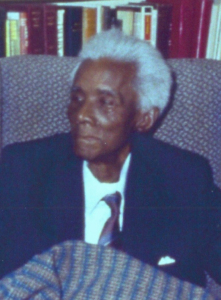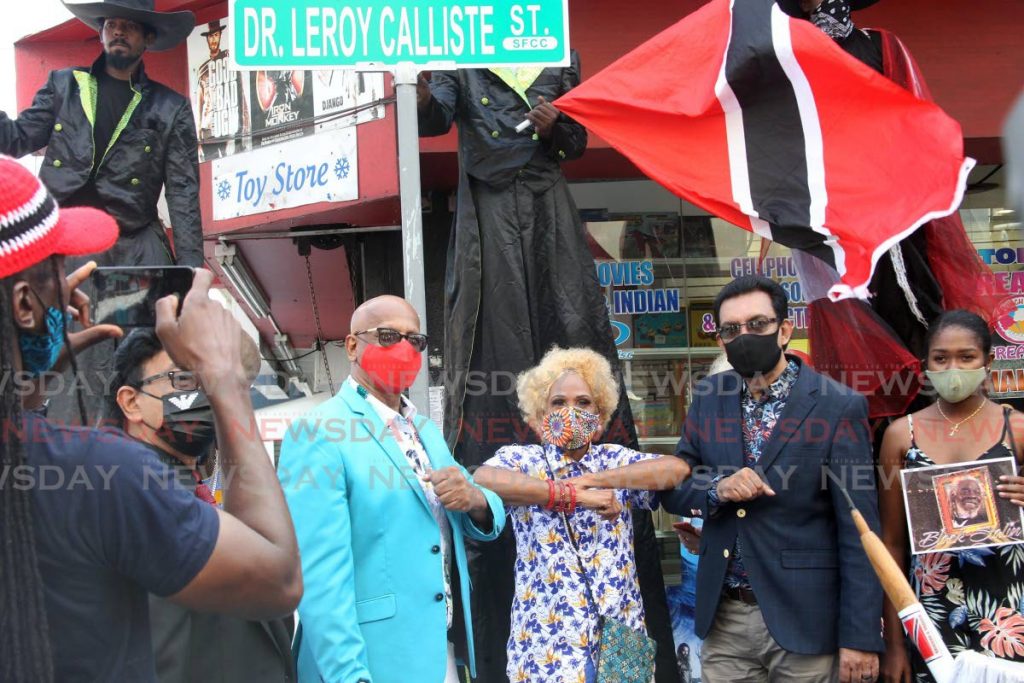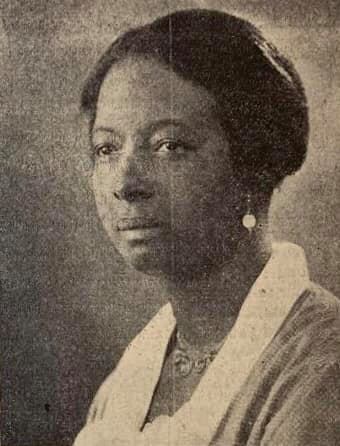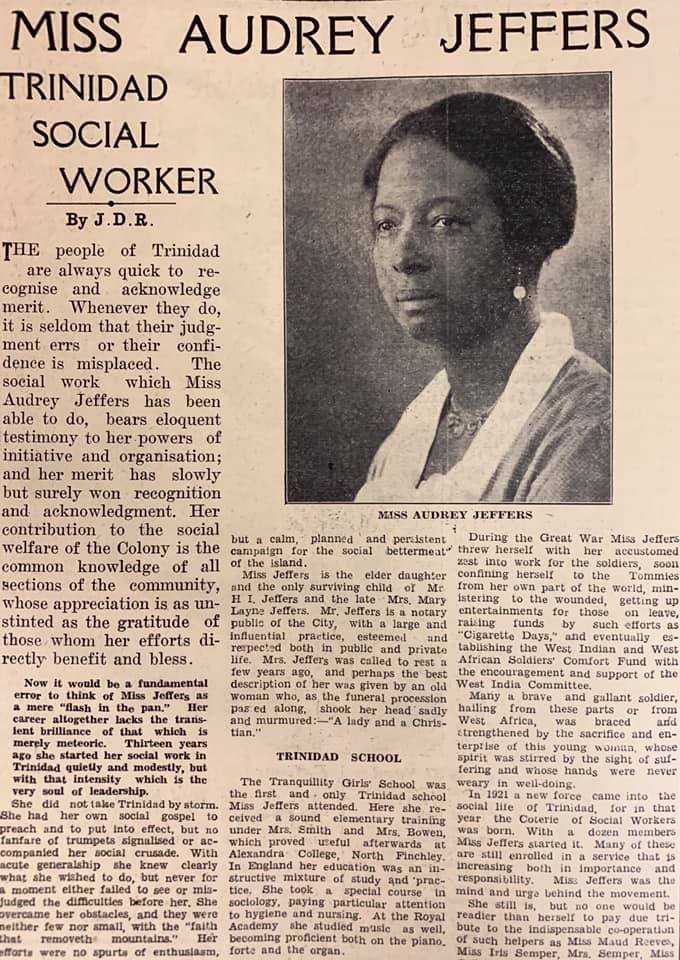|
Since the early 70s, Keith 'Jumbo' Martin has been a fixture at cricket matches selling nuts. He earned himself a reputation in the Queen's Park Oval for his accuracy in throwing packs of nuts to customers seated some distance away in the bleachers. Twenty years or so before Jumbo came on the scene, there was another well known nuts man nicknamed 'mile a minute'. This nuts vendor was a short, slim Chinese gentleman who used to walk around the Queen's Park Savannah at a brisk pace selling his peanuts.
Nuts have become a popular street food along the busy highways of our nation. The nut vendors are mostly found by the traffic lights on these highways hustling sales when the traffic is at a standstill. In case you are wondering, a pack of nuts (salted or fresh) cost $5, same price as a doubles. Fun fact: ever see a nuts man shaking the pack of nuts? That's to tell if they are salted or fresh as the ones with salt make a noise when the grains move about in the bag. Source: Virtual Museum of TT , Feb 17, 2021
0 Comments
 Born in Tunapuna, Trinidad and Tobago to lower middle-class black parents one generation removed from emancipation, C. L. R. James (1901-1989) was a social theorist, historian, writer, and revolutionary whose maturity roughly corresponds to what Eric Hobsbawn called ‘the short 20th century.’ It was this contextual standpoint of a Caribbean childhood, and later movements to Britain, United States, and West Africa, that shaped his view of the destructive complexity of the modern world and the imperative to break with “old bourgeois civilization” (James cited by Grimshaw, 1991) In the Global North James is primarily known for two books, The Black Jacobins (1938) which arguably founded Atlantic Studies, and Beyond A Boundary (1963) which influenced the research agenda of late 20th century cultural studies. Each book is indicative of the various wings of James’ wider intellectual project, with the first asking scholars to reconsider the role of racial oppression in capitalism and the second prompting a reconsideration of the role of class formation in popular culture via his treatment of sport, race, and imperialism. These projects combine to provide a Marxist inspired analysis of modernity in which questions of combined and uneven development are foregrounded. The result is to demonstrate the enduring links between advanced capitalist countries and colonized regions along the lines of race, class, and everyday experience. James’ critique of modernity brought worldwide recognition and broke ground for others to work in this field. But equally important are his thoughts on Caribbean politics and economics, topics of his that receive relatively less attention overall. To begin, through The Life of Captain Cipriani (1932) and The Case for West Indian Self-Government (1932), in the pre-war era he shaped the movements for West Indian independence. (Portions of his archive are preserved at Cipriani College of Labour & Co-Operative Studies in Trinidad and Tobago and still maintained by the local labor movement.) On returning to Trinidad in 1956 after being deported from the United States, James became the editor of The Nation, a local newspaper, famously advocating for Frank Worrell to become captain of the West Indies Cricket Team. This well-known case is but one minor example of how James used the position to revisit fundamental questions about government and society, sensing the significance of the historical moment where West Indians could become the vanguard in the struggle for more egalitarian social relations. In the post-independence period James took stock of the various contradictions, competitions, and antagonisms that circulated in the social life in the West Indies and suggested that efforts to induce modernization were shortsighted. This put him in conflict with the post-independence political class, whose budding radicalism was tempered and redirected into cultural nationalism. For example, contra the views of notable Caribbean political economists like Sir Arthur Lewis who thought that Caribbean development was hampered by unemployment and a weak local capitalist class, James stressed how prosperity could be achieved through labor taking a greater control of production. Effectively, moving Caribbean societies from an agricultural base to industrialism would likely prove difficult unless there was greater attention to the legacies of colonial governance created by racial capitalism. In summary, for James emancipation can best be achieved through a social reconstruction of the way people relate to one another. Much needed if one were to escape the “problems of nationality.” Sadly, James’ views did not prevail. Escaping the problems of nationality led James’ to have a significant role in promoting Pan-Africanism, a topic he wrote about in Nkrumah and the Ghana Revolution (1977). Later when reflecting back on this period, he wrote that, “there were never all told more than a dozen of us, who banded ourselves together in 1935 to propagate and organize for the emancipation of Africa. For years, we seemed, to the official and the learned world, to be at best, political illiterates. Yet we were part of the New World pregnant in their old decay.” (James, Tomorrow and Today, 1) These words capture so well the many diverse elements of James’ work, like his Marxist reading of history and his contribution of early post-colonial thought rubbed up against the incredulity of the European intellectual class. A committed, practising post-Trotskyist, James’ politics catered towards revolutionary emancipatory impulses, and suggested that gradual improvements of living and working conditions were insufficient. Rather, his politics centred upon the historical and geographic inter-connectedness between societies and the people who live in them. In this respect, James anticipated the value of methodologies that examine the transnational movement of capital and knowledge, goods and people. James’ contribution to cultural studies in the UK, while significant was comparatively slow to develop. Despite being known in niche academics circles, it was only in the mid-1980s and early 1990s that his scholarly status began to increase through Stuart Hall, Bill Schwarz, and other theorists in the postcolonial turn. Three years before his death, a BBC Arena documentary, C. L. R. James’ First Cricket XI helped cement this recognition. Even so, Jonathan Scott (2018) has recently warned how this canonization courts a misinterpretation where James’ project is framed as “primarily concerned with self-fashioning and cultural identity,” an interpretation clearly at odds with James emphasis on the totality of political life and its historical dimensions. Granted, James’ wide and deep range is hard to capture in a few paragraphs, but there is an analytical urgency to his project, to grasp the whole to ultimately offer a critique of, and remedy to, the partiality of capitalist ideology, while also resisting the established dogmas of mainstream Marxism. Each year more of James’ work is put in circulation increasing the opportunities for sociologists to engage with all of his writing. The most promising of these comes from his time in America, the creation of and iterations from ‘Johnson-Forest’ Tendency particularly how it created a scaffolding for the interpretive analysis in his later work (see Grimshaw 1991). I suspect James’ importance and contribution to the development of global social theory will only increase in the coming decades. Perhaps aptly so given that more than 80 years after the publication of The Black Jacobins, he remains a companion able to help students and scholars “pioneer into regions Caesar never knew” (2005, 1). Essential Reading: James, C. L. R. 2005 [1963]. Beyond A Boundary. Yellow Jersey Press, London. James, C. L. R. 1989 [1963]. The Black Jacobins. Vintage, New York. [First published in 1938] James, C. L. R. (nd) Tomorrow and Today: A Vision, New World Journal Further Reading: Grimshaw, Anna, 1991. C.L.R. James: A Revolutionary Vision for the 20th Century Henry, Paget, and Buhle, Paul (eds) 1992. C. L. R. James’s Caribbean, Duke University Press, Durham James, C. L. R. 1992. The C. L. R. James Reader (edited by Anna Grimshaw) Wiley Blackwell, Oxford. Robinson, Cedric 1983. Black Marxism: The Making of the Black Radical Tradition, The University of North Carolina Press, Chapel Hill. Chapter 10 Scott, Jonathan. 2018. The Americanisation of C. L. R. James, Race & Class 60(2) Patsy Calliste, wife of Dr Leroy "Black Stalin" Calliste, flanked by San Fernando mayor Junia Regrello, left, and Local Government Minister Kazim Hosein at the unveiling of Dr Leroy Calliste street, after converting part of Lord Street, San Fernando by the San Fernando City Corporation, Tuesday. PHOTOS BY LINCOLN HOLDER A street-sign unveiling in honour of veteran calypsonian Leroy "Black Stalin" Calliste created a mini Carnival-like atmosphere in San Fernando on Carnival Tuesday. The 79-year-old five-time Calypso Monarch did not attend, for health reasons. But despite this year’s cancellation of Carnival, Dr Leroy Calliste Street came alive with Carnival characters like moko jumbies and blue devils dancing to live drumming and music from a portable radio. The renamed street (formerly Lord Street) runs from the corner of Coffee Street to Paradise Street. Members of the San Fernando City Corporation hosted the ceremony in a nearby car park. Police blocked off part of the street, near the corner of Mucurapo Street, and redirected traffic. San Fernando mayor Junia Regrello said Calliste was born on Lord Street on September 24, 1941, epitomising the phrase "Born in the heart of San Fernando." He said Calliste began his illustrious career as a limbo dancer and pan player before joining Southern Brigade Calypso Tent in 1959. He moved to the calypso tents in Port of Spain, where Lord Blakie christened him The Mighty Stalin, for his fearless style. Regrello listed several of Calliste’s songs, among them Beat My Tune, The Caribbean Man, Better Days are Coming, Black Man Feeling to Party and Sufferers. "His work will remain etched in the archives for our scholars, educators and students to research," Regrello said. "His appreciation of the art form, the people, his country and the Caribbean have connected him in such a way that he is loved both by his and the current generation. His music has and is simply timeless." Several calypsonians attended, among them Brian London, Weston "Cro Cro" Rawlins, Steve "Ras Commanda" Pascal, Winston "Gypsy" Peters, Roy Cape, TUCO head Lutalo "Brother Resistance" Masimba and Terri Lyons. Rural Development and Local Government Minister Kazim Hosein and former culture minister Joan Yuille-Williams also attended. Calliste’s wife Patsy, 74, sang and danced to his music. She recalled that they first met at Harris Promenade and often hung out at Lord Street. Back then, he was called the Mighty Stalin. "We used to hide here and hold hands. So this street was marked a very long time. I am very proud. "Our families never knew about our dating days on Lord Street. This was our hiding space when we were young. Our love really started on Lord Street," she said. On the renaming of the street, Patsy said it was long overdue. As for Stalin's health, Patsy said,"He is doing good. He is at home right watching it live (on social media). Veteran calypsonian Peters commended the organisers for honouring Calliste, saying the event was of great significance for the pan and calypso fraternities. These fraternities, Peters said, have undergone a lot of stress and deprivation. "Both went through the same type of situation, a situation where today in this country some people still scorn some calypsonians. To this very day, some people do not want their sons and daughter to have anything to do with people who play pan," Peters said. "Many years ago, if we were unveiling a plaque, that plaque would have said: 'No calypsonian or dog allowed.'" Peters recalled first meeting and performing for Calliste in 1962 at the age of ten in Mayaro. Peters, who wrote his first song at four, said he sang an original composition. Peters, the chairman of the National Carnival Commission, commended the universities for awarding honorary doctorates to cultural icons, among them Calliste, Cape, Slinger "Mighty Sparrow" Francisco and Len "Boogsie" Sharpe. Cape recalled meeting Calliste in 1977, adding, "Leroy trusted me with his music, his career, taking bookings and handling his money. To his family, I feel as if I am family. Up to today, I am amazed at the work he has done, not for self but for the country." Kazim said Calliste would go down in history as one of the best calypsonians in south Trinidad and said he would like to see other icons honoured similarly. He promised to speak with the corporations on the proposal. Source: Newsday Feb 16, 2021 Laura Roberts-Nkrumah grew up in St. James, Trinidad and Tobago, a community rich with plant life.
“There were many fruit trees,” she says. It was this proximity to nature’s bounty that fostered her early attraction to flora and food, an interest that would eventually lead to her outstanding career as a scientist, agriculturalist, educator and Caribbean pioneer in the study and cultivation of breadfruit. Professor Roberts-Nkrumah is Professor of Crop Science and Production within the Department of Food Production at UWI St Augustine’s Faculty of Food and Agriculture (FFA). During her more than 30-year career she has trained many students in the science and production of various crops. “My primary career goal as a member of academic staff, and former student of this faculty, was to make a difference, in at least in some small way, to the food and agriculture sector in the Caribbean. I have shared this goal with my students; their training at the FFA was about much more than certification; it was about capacity building for the development of our countries and region”, she says. Professor Roberts-Nkrumah is most well-known for her work in breadfruit. She has raised the stature of this neglected and underutilised crop, which was traditionally important for food security in the Caribbean but stigmatised as ‘slave food’ and largely ignored by research. Her work includes expanding the range of cultivars (different varieties) in the region through importation, and establishing a germplasm collection at UWI St. Augustine Campus. The collection has been evaluated for growth, development, seasonality, yield, disease resistance, nutritional content and, more recently, there has been DNA characterisation. Studies have been conducted on propagation, orchard management, as well as on consumer acceptance, contribution to food security and farm income. “Most persons are unaware that there are different types of breadfruit. This collection is an educational and research resource that is critical if the commercial potential of breadfruit for human nutrition, and for other methods of utilization, for example, medicine is to developed beyond its current level in T&T and the wider Caribbean”. Based on her work in breadfruit, Professor Roberts-Nkrumah was commissioned to prepare a strategic plan for the development of a breadfruit and breadnut industry in St Kitts and Nevis. She initiated, secured external funding for, and co-convened the first International Breadfruit Conference, which was held in Trinidad and Tobago in 2015. She was also invited to contributeto a review chapter on breadfruit production for the prestigious publication, Horticultural Reviews. “A number of new breadfruit products, as diverse as chips, wines and beauty products are already being produced on a commercial scale elsewhere. My greatest satisfaction would be the emergence of a sustainable breadfruit industry in the region based on innovative products, which is entirely possible with our people’s creativity. Support for multi-disciplinary research and consumer education will be two key requirements” Apart from her work in this area, Professor Roberts-Nkrumah is a pioneering woman in science, who for many years has operated at the highest level of her field. Data from UNESCO’s Institute for Statistics shows that less than 30 percent of the world’s researchers are women, and only around 30 percent of all female students select STEM-related fields in higher education. Recognising the importance of women in the sciences, the UN General Assembly made February 11 the annual International Day of Women and Girls in Science. Professor Roberts-Nkrumah says many women inspired her own journey into the sciences, starting with her grandmother: “She was recognised as a champion farmer in Tobago. My grandmother was an independent and strong woman who continued to farm even in her 70’s. I have fond memories of the delicious fruits, cocoa tea, and high quality cassava, sweet potatoes and pigeon peas that she grew and our family enjoyed.” She admires scientists such as Professor Margaret Sedley, a botanist, whose work was closely linked with the development of the avocado industry in Australia and Professor Ruth Oniang’o, a pioneer in food science and nutrition studies on indigenous crops in Kenya. She was most inspired in her career, however, by Professor Lawrence Wilson, a leader in research on tropical root crops at The UWI, who taught her at both undergraduate and graduate levels. “I admired his insight and creativity as a scientist,” she says. “He instilled in me the significance of basic scientific knowledge for understanding crop physiology and addressing crop production issues.” Professor Roberts-Nkrumah’s legacy of work also includes outreach activities with crop producers and nurseries, and the general public throughout the Caribbean. Apart from providing hands-on training, several manuals and fact sheets have been made available, including manuals on breadfruit propagation and orchard management, which were commissioned by the Food and Agriculture Organisation and are available online. Her work has produced 117 publications, among which is a book titled The Breadfruit Germplasm Collection at the University of the West Indies, St Augustine Campus, a reference text for stakeholders in the breadfruit sector, from scientists, to growers, sellers and consumers. When asked about her career success, she credits her family life: “I consider myself to have been blessed by my family background, which provided stability, focus, a high value on education, strong work ethic and strong Christian values. All of these and the commitment to service were reinforced at school.” As a wife, mother, and daughter, she has had to balance work with family life and responsibilities. This was not always a simple matter but unconditional support from her husband and children helped to make it possible. “They have accompanied me in the field on many occasions,” she says. “As much as possible I limited my travelling for field research in the Caribbean to the school vacation period, when the family could also travel with me. This has paid dividends as I now see the children’s own gardening initiatives and hear them offering ‘on target’ advice to their peers.” Even though she is a scientist, as a young student Professor Roberts-Nkrumah loved English Literature as well. However, her desire for the outdoors pushed her towards science and agriculture. And though she has experienced numerous challenges during her career -- from the very limited scientific literature on breadfruit, to the difficulties of data collection in the field, to having to balance research with her heavy teaching load -- her work has revolutionised the breadfruit sector and has the potential to make a major impact on regional food security. Perhaps more importantly, she followed her passion, found her mission and built a career. “The application of science to food and agriculture is a most worthwhile endeavor. It’s about knowing what you were born to do. Focus, faith and willingness to work for the benefit of others, even with obstacles, will always be rewarding – “Non sine pulvere palmam” (Not without the dust the victory). Source: UWI Campus News, Feb 15, 2021 We’re recognizing the contributions of Audrey Jeffers, the first woman to be elected to the Port of Spain Municipal Council and the first woman to sit on the Legislative Council of Trinidad and Tobago. Born on February 12th 1898 in Trinidad, Audrey Layne Jeffers was a prominent social worker and an activist. As a young girl, she attended the Tranquility Girls’ School in Port of Spain, and continued her studies in social science abroad. During World War I, she treated soldiers from the Caribbean and West Africa, eventually establishing an organization called the West Indian and West African Soldiers’ Comfort Fund to continue these efforts. In April 1921, she became one of the founding members of the Coterie of Social Workers, which provided social services in Trinidad. With the Coterie, Jeffers played a major role in the institution of several free breakfast sheds, including the Children’s Breakfast Centre in Port of Spain. Jeffers also helped to establish the St. Mary’s Home for the Blind (which was named after her mother, Ms. Mary Jeffers), as well as the Maud Reeves Hostel for Working Girls. In 1929, Jeffers represented Trinidad and Tobago at the International Council for Women in London, where she was one of two representatives of colour. Upon her return to Trinidad, she opened the Workingmen’s Dining Shed in South Quay. In October 1936, she became the first woman to be elected to the Port of Spain Municipal Council and in 1946, the first woman to sit on the Legislative Council of Trinidad and Tobago. Jeffers also sat on the Franchise Committee in 1945, where she shocked many by voting against universal adult suffrage (the right to vote). Her lack of support in this moment has been described as a misstep in her career. It did not, however, prevent universal adult suffrage from being instituted in Trinidad and Tobago in 1945. Jeffers received the MBE (Member of the Order of the British Empire) in 1921 and the OBE (Officer of the Order of the British Empire) in 1959 for her contributions to social services in Trinidad and Tobago. In 1958, she was appointed the honourary Consul for the Republic of Liberia. She passed away on June 24, 1968 and was posthumously awarded the Chaconia Gold Medal for Social Service at Trinidad and Tobago’s first Independence Day Award Ceremony in 1969. The Audrey Jeffers Highway, which runs from Port of Spain to Cocorite, and the Audrey Jeffers School for the Deaf in San Fernando, were both named in her honour. This photo of Audrey Jeffers and the corresponding article, “Miss Audrey Jeffers: Trinidad Social Worker'' by J. D. R. are both courtesy of the Trinidad Guardian, published on September 2nd 1934. This newspaper is part of the NATT Newspaper Collection. References: Khan, Nasser. Profiles, Heroes, Role Models and Pioneers of Trinidad and Tobago: Celebrating Our 50 Years of Independence 1962-2012. First Citizens Bank, 2012. Lopez, Suzanne, and Rhona Baptiste. The 90 Most Prominent Women in Trinidad and Tobago. Trinidad Express Newspapers, 1991. Source: National Archives of Trinidad and Tobago, February 17,2021
All Yuh Remember Sunday Morning Market!! The Vendors Outside The Market Use To Have Some Good Deals! Ent Source: Carl Nelson, Trinbago Golden Memories, Jan 31, 2021
Miss Palmiste - Jeanine Brandt is the new Miss Trinidad and Tobago 2021 and will now represent our nation at the Miss World 2021 Pageant.
STILL GOING: Rita Smyke, who turned 107 in December, surrounded by her relatives at Craignish Village, Princes Town on Wednesday last week. - MARVIN HAMILTON RITA Smyke, considered the matriarch of the Merikin community was celebrated by four generations of her descendants at her 107th birthday in Princes Town on Wednesday last week.
Smyke, who outlived her siblings, husband and one of her five children, turned 107 last December. Owing to the death of one of her sons, Jimmy, the festivity was postponed. The celebration was held under the patronage of Minister of Sport and Community Development Shamfa Cudjoe, who joined the celebrations virtually. She also sent a huge bouquet of flowers for Smyke which was presented on her behalf by Curwin Callender who serenaded Smyke. “It is indeed a tremendous privilege and honour to join the Merikin community as we celebrate the 107th birthday of Rita Smyke, the oldest female Merikin and matriarch of our Merikin community,” Cudjoe said. “'Congratulations' doesn’t seem adequate to capture the true essence of what this milestone means as it is no ordinary feat to live to 107 years.” Describing her as a “walking history book,” Cudjoe said Smyke has been witness to evolution and revolutions, experiencing two world wars, the Spanish flu and now the covid19 pandemic. “Oh, what stories you have to tell. I wish that I could spend the time to sit at your feet and listen.” Smyke thanked God and the principles and values inculcated in her by her late grandmother for having lived a long and productive life. Commenting on the scourge of crime, she said growing up, she was able to close her door and leave her children home and nothing would happen to them, “because we had a neighbourhood where we lived in love.” Her second daughter, Jackline Cooker, said her mother was and still is the essence of human kindness. She said their home was the first cinema in Lothian’s Road, Princes Town, where they lived, as they had the first television in the community. “Mummy’s door was always open to every child in the neighbourhood. We had a simple home, but Mummy found room for every child to sit and watch television. “Mummy was the neighbourhood lawyer, she was the neighbourhood doctor and if you gave her a chance she would have been the neighbourhood mechanic." She recalled if someone had a medical issue, Smyke would leave the children at home, with a list of assigned task, to accompany that person to the clinic or hospital. Cooker said she and her siblings were often angry when her mother would leave them in order to help someone, and only understood as they grew older, this is what God expects of his children and how people should live with and treat others. Cooker noted too, at that time, neighbours looked after them as they would their own children. Their father died in 1979. Up until she was 75, Cooker said, her mother would walk from the top of Cipero Street, San Fernando to a street near T&TEC (approximately 1.5 km or 0.9 miles) to take care of an elderly lady. “Then she would go to Manahambre and Craignish to take care of the family. When Dad wasn’t working she would wash and iron for other people to help her husband take care of their children. “What a wonderful mother. What a wonderful human being. She worked hard in the home, she worked hard for her church – the Seventh Day Adventist. God has truly blessed her and her generation.” In addition to her five children, Smyke has 13 grandchildren, 30 great-grandchildren and eight great-great-grandchildren, with a ninth on the way. (L-R) At the reception of the vaccines are Prime Minister Mia Amor Mottley, Senator Dr Jerome Walcott and Honorary Consul of India in Barbados Dr Philomena Mohini-Harris. Barbados has received the 100,000 doses of AstraZeneca vaccine from India in nine boxes and the plan is to share the doses with Trinidad and Tobago, Guyana and some other Eastern Caribbean territories.
Their Prime Minister, Mia Mottley, Health Minister Lt Col Jeffrey Bostic, Foreign Affairs Minister Senator Dr Jerome Walcott, Public Health Specialist and National Coordinator of the National COVID-19 Vaccination Campaign Dr Elizabeth Ferdinand and Honorary Consul of India in Barbados Dr Philomena Mohini-Harris, as well as members of the Barbados Defence Force were on the tarmac to meet the plane and receive the vaccines on behalf of Barbadians. PM Mottley addressed the nation earlier tonight, just after 7:30 pm in a televised and streamed press conference from Ilaro Court, saying that she thanks India's Prime Minister Narendra Modi for ensuring that members of the Commonwealth including Barbados has received vaccines. Pleased, she said that she can confirm Barbados "took possession just hours ago of nine boxes of vaccines, 100,000 doses of vaccines for 50,000 persons of the vaccine the Oxford AstraZeneca vaccine to aid in our battle with COVID-19... "These are parts of the first batch of a potential 200,000 doses for Barbados." Having made mention of the hope to attain more vaccines to cater to the entire population or the majority as government works towards herd immunity, Prime Minister Mottley reiterated the wish to purchase the remaining 100,000 from the government of India. Despite still being in negotiations for the second batch, today, the PM said: "Thank you to India. Truly this has been a very special moment for our people, and I really want to thank Prime Minister Modi for his quick, decisive and magnanimous action in allowing us to be the beneficiary of these vaccines which they have given us for our people and indeed in sending it in the shortest possible time to aid in our fight. We believe this is a special moment." Six boxes of vaccines were sent on to Dominica from the Grantley Adams International Airport in Barbados, and PM Mottley said it is Dominica's hope as well to get a second batch in six to eight weeks too. The two prime ministers, Mottley and PM Roosevelt Skerrit of Dominica, worked together to make these donations a possibility and they have decided that other members of the Organisation of Eastern Caribbean States (OECS) should be beneficiaries too. This is according to Prime Minister Mottley, who went on to state that: "In Barbados' case, Trinidad and Guyana who have helped us over the last year, believe you me nobody has gone through this without seeking assistance and therefore both of us have decided that some of the vaccines that we have received will go to our brothers and sisters in those territories within the OECS, with Dominica taking care of some, Barbados doing some and Trinidad and Guyana as a result of the work that has been done closely with our people in Barbados." Source: The Loop, Feb 10, 2021 |
T&T news blogThe intent of this blog is to bring some news from home and other fun items. If you enjoy what you read, please leave us a comment.. Archives
July 2025
Categories
All
|









 RSS Feed
RSS Feed